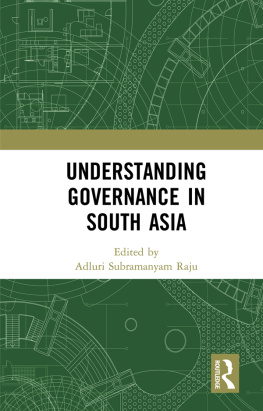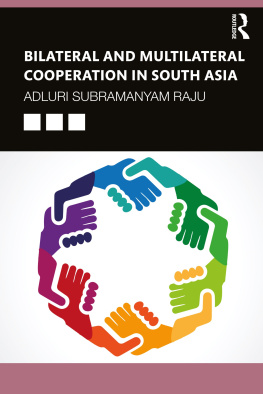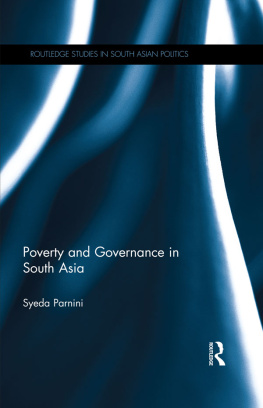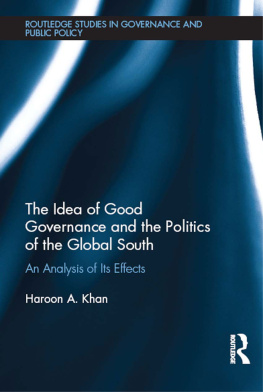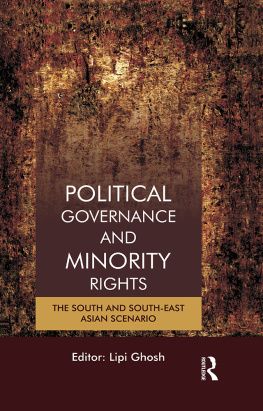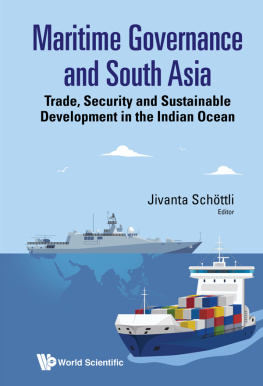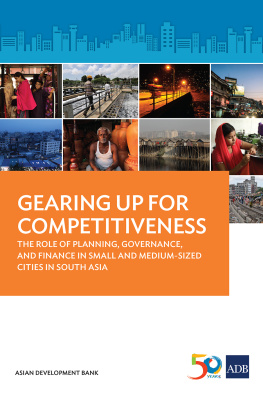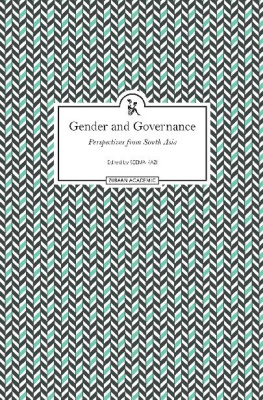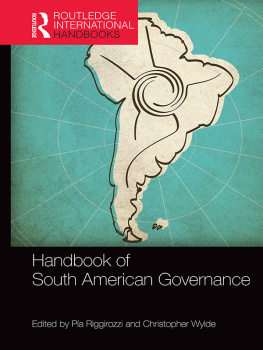UNDERSTANDING GOVERNANCE IN SOUTH ASIA
The concept of good governance in South Asia poses a challenge at the implementation level, mainly due to ethnocentricity, regional disparities, division between poor and rich, and rural and urban division among the people. Concepts such as decentralization, citizen engagement, lean public service, privatization, autonomy, public-private partnership may work well in developed countries but may not produce the same results in the region where the majority of poor people expect their government to fulfill their basic needs.
Governance in South Asia needs to be reformed to ensure that poverty can be reduced, if not completely eradicated. Poor governance and the various means by which governance has fallen short, has led to lack of development and continuance of poverty in South Asian societies.
South Asian countries have more or less similar objectives, structures, value systems, cultures, and standards of governance despite different forms of government. The colonial legacy of British administrative system had its impact on centralization. Secrecy, elitism, rigidity, and social isolation is common to all South Asian countries. The post-colonial administrative system is built upon pre-colonial administrative traditions throughout the region. South Asian countries can learn from each others experiences. The countries in the region need to develop an indigenous model to find pragmatic solutions to the challenges of good governance. South Asian countries can achieve good results through good governance if they develop and adopt an indigenous model rather than simply borrowing models and ideas from the West.
Adluri Subramanyam Raju is Professor and former Head, UNESCO Madanjeet Singh Institute of South Asia Regional Cooperation (UMISARC) and Centre for South Asian Studies, and Coordinator of the UGC Centre for Maritime Studies, Pondicherry University, Puducherry. He was a visiting fellow at the Bandaranaike Centre for International Studies, Colombo in 2012. He has a large number of books and articles to his credit.
First published 2021
by Routledge
2 Park Square, Milton Park, Abingdon, Oxon OX14 4RN
and by Routledge
52 Vanderbilt Avenue, New York, NY 10017
Routledge is an imprint of the Taylor & Francis Group, an informa business
2021 selection and editorial matter, Adluri Subramanyam Raju; individual chapters, the contributors; and Manohar Publishers & Distributors
The right of Adluri Subramanyam Raju to be identified as the author of the editorial material, and of the authors for their individual chapters, has been asserted in accordance with sections 77 and 78 of the Copyright, Designs and Patents Act 1988.
All rights reserved. No part of this book may be reprinted or reproduced or utilised in any form or by any electronic, mechanical, or other means, now known or hereafter invented, including photocopying and recording, or in any information storage or retrieval system, without permission in writing from the publishers.
Trademark notice: Product or corporate names may be trademarks or registered trademarks, and are used only for identification and explanation without intent to infringe.
Print edition not for sale in South Asia (India, Sri Lanka, Nepal, Bangladesh, Pakistan or Bhutan)
British Library Cataloguing-in-Publication Data
A catalogue record for this book is available from the British Library
Library of Congress Cataloging-in-Publication Data
A catalog record for this book has been requested
ISBN: 978-0-367-55790-4 (hbk)
ISBN: 978-1-003-09514-9 (ebk)
Typeset in Adobe Garamond Pro 11/13
by Ravi Shanker Delhi 110 055
TO
UNESCO Goodwill Ambassador
(Late) Dr. Madanjeet Singh
Philosopher, Diplomat, Philanthropist, Writer, Artist
Founder, South Asia Foundation, New Delhi
Contents
Adluri Subramanyam Raju
Adluri Subramanyam Raju
I.P. Khosla
Prithvi Ram Mudiam
Ramesh Chandra Das
M.J. Vinod
P. Sahadevan
N. Manoharan
Uttara Sahasrabuddhe and Gayatri Lele
Gopalji Malviya
Rajamanickam Srinivasan
Abhishek M. Chaudhari
Shaurabh Anand and Nishant Srinivasaiah
Vaibhavi Palsule
Som P. Pudasaini
Biswas Baral
Guide
I express my gratitude to the South Asia Foundation, New Delhi, for financial support to carryout academic activities at the UNESCO Madanjeet Singh Institute for South Asia Regional Cooperation (UMISARC) and the Centre for South Asian Studies, Pondicherry University. I express my thanks to Prof. Anisa Basheer Khan, former Vice-Chancellor (Officiating), for her support in organizing the seminar at the Institute. I am grateful to Prof. Gurmeet Singh, Vice-Chancellor, for his encouragement in carrying out the academic activities at the Institute. I also take this opportunity to thank all the authors sincerely for contributing their valuable chapters to this volume.
ADLURI SUBRAMANYAM RAJU
A DLURI S UBRAMANYAM R AJU , Professor and former Head, UNESCO Madanjeet Singh Institute of South Asia Regional Cooperation & Centre for South Asian Studies, Pondicherry University, Puducherry.
I.P. K HOSLA , Former Secretary, Ministry of External Affairs, New Delhi.
P RITHVI R AM M UDIAM , Professor, Department of Political Science, University of Hyderabad, Hyderabad.
R AMESH C HANDRA D AS , Associate Professor, Department of Economics, Katwa College, Katwa, West Bengal.
M.J. V INOD , Professor, Department of Political Science, Bangalore University, Bengaluru.
P. S AHADEVAN , Professor, Centre for South Asian Studies, School of International Studies, Jawaharlal Nehru University, New Delhi.
N. M ANOHARAN , Associate Professor, Department of International Studies and History, Christ University, Bengaluru.
U TTARA S AHASRABUDDHE , Professor, Department of Civics & Politics, University of Mumbai, Mumbai.
G AYATRI L ELE , Assistant Professor, Department of Political Science, Ramnarain Ruia College, Mumbai.
G OPALJI M ALVIYA , Former Dean School of National Security Studies at Central University of Jammu, Jammu.
R AJAMANICKAM S RINIVASAN , Group Captain (Retd.), Independent Researcher, Coimbatore.
A BHISHEK M. C HAUDHARI , Research Analyst, New Delhi.
S HAURABH A NAND , School of Natural Sciences and Engineering, National Institute of Advanced Studies, Bengaluru.
N ISHANT S RINIVASAIAH , School of Natural Sciences and Engineering, National Institute of Advanced Studies, Bengaluru.
V AIBHAVI P ALSULE , Associate Professor, Department of Political Science, Ramnarain Ruia College of Arts and Science, Mumbai.
S OM P. P UDASAINI , Executive Member, Nepal Council for World Affairs, Kathmandu.
B ISWAS B ARAL , Journalist, Republica National Daily, Kathmandu.
Adluri Subramanyam Raju
Discourse on governance has been debated since 1985 and it has emerged as a global agenda for development as many countries realized that without addressing the emerging developmental issues and relating them to human beings, states would not be stable and would face social unrest across the globe. Thus the importance of governance has been advocated by the multilateral agencies like the

